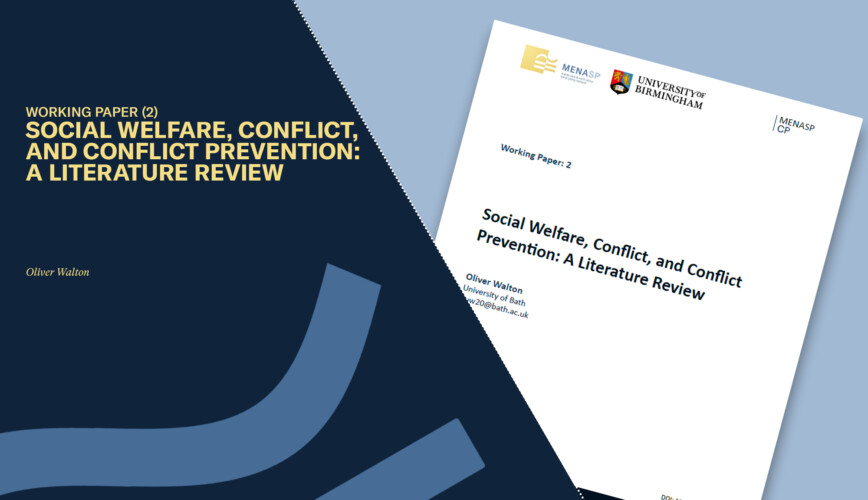The relationship between social welfare and conflict is complex, bidirectional, and sometimes contradictory. On the one hand, social welfare or social protection programmes may improve state legitimacy, enhance social cohesion, or reduce horizontal inequalities, all of which may in turn reduce the likelihood of conflict. On the other hand, armed conflict or other forms of societal violence are likely to undermine social welfare and social protection systems, making them more politicised and undermining their effectiveness by eroding public trust and state capacity, reducing available financing for social protection, or by increasing the extent of external engagement (Sabates-Wheeler et al., 2022). In conflict settings, elites are more likely to establish social protection schemes or to deliver or reform services in ways that benefit their own social group (Burchi et al., 2022), a dynamic which can exacerbate conflict (McLoughlin 2018, Stewart 2009). Inadequate services may generate conflict in the form of violent or non-violent protests. Conversely, wars may create moments of opportunity where new rules of the political game can be established, when public expectations about the role of the state change, and where political leaders have space to make radical changes in the foundations of state legitimacy. An example of these dynamics can be seen in the emergence of welfare regimes in European countries following the end of the Second World War (Obinger et al., 2018).
In this paper, we draw on existing literature to show that the bi-directional relationship between social welfare provision and conflict is connected by four main mechanisms (state and non-state legitimacy, social cohesion, horizontal inequalities, and economic development), which in turn are shaped by two further factors (the design of the social welfare programme, and the underlying political settlement).
DOI: 10.48352/uobxmenasp.0024
Author: Oliver Walton (University of Bath)
This project is supported by the Middle East and North Africa Social Policy Network (MENASP) at the University of Birmingham, in the framework of its ‘strengthening social welfare and security in the MENA region’ research programme, funded by the UK Arts and Humanities Research Council’s Global Challenges Research Fund.
Disclaimer: The opinions expressed in this publication are those of the authors. They do not purport to reflect the opinions or views of the Middle East and North Africa Social Policy (MENASP) Network or the University of Birmingham.
